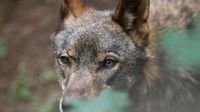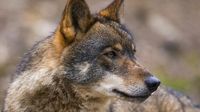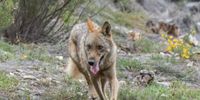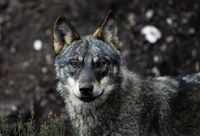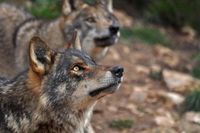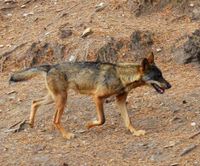The Congress of Deputies in Spain has made a significant legislative change that has stirred controversy regarding wildlife protection policies. On March 20, 2025, Congress approved an amendment allowing the Iberian wolf to be removed from the List of Wild Species under Special Protection (Lespre), enabling its hunting once again, specifically north of the Duero River. This shift comes only three and a half years after the wolf was granted protection from hunting, a status it received in September 2021, following a push from conservation groups and various political entities.
The legislative change was introduced as an amendment to the Food Waste Law, which received approval largely from the Popular Party (PP), Vox, the Basque Nationalist Party (PNV), and Junts, with the latter group abstaining rather than opposing the decision. The approval was greeted with applause in the Chamber, but it has drawn sharp criticism from environmentalists and organizations concerned about the implications for biodiversity and conservation efforts.
Prior to being designated as an endangered species, approximately 100 wolves were legally hunted each year in regions north of the Duero River. The new amendments open the possibility for similar actions to take place in southern territories as well, pending future changes to European protection rules. The geographic division emphasizes a divided stance on wolf management, with distinct approaches for areas south and north of the Duero.
Critics of the decision, including the Ministry for Ecological Transition, have labeled the move as “deeply irresponsible,” citing a lack of scientific backing. Sara Aagesen, the Minister for Ecological Transition, expressed concern about the hasty nature of the decision, indicating that vital data regarding the wolf population was still being compiled and would have provided a more informed basis for the discussion. The ministry is in receipt of data from autonomous communities and had hoped to finalize assessments before such a significant policy change.
As a result of increased wolf populations and the legal prohibition on hunting since 2021, agricultural sectors have faced substantial financial losses. In Galicia alone, reports indicate that wolves were responsible for the deaths of 3,200 domestic animals the previous year, a situation prompting calls for population control measures from farmers who argue their livelihoods are at stake. Milagros Marcos, a spokesperson for the PP, stated that the protection had led to an “imbalance” detrimental to rural communities, asserting that “there must be a balance and coexistence” between agriculture and wildlife.
In response, environmental groups have condemned the decision, arguing that allowing hunting will not solve the underlying issues between farmers and wolves. Juan Carlos del Olmo, General Secretary of WWF, described the amendment as a “black chapter for conservation history in Spain” and warned of potential “indiscriminate killings” across regions with high wolf populations like Cantabria, where local councils are already contemplating hunting quotas.
Another contentious aspect of the amendments is the modify provisions on food waste management, effectively arguing that the carcasses of animals killed by wolves should be accounted for due to health risks and contributes to food loss. The PP articulated that wolf attacks contribute to the waste of four million kilos of livestock meat annually, and this figure was used to justify the relaxation of protections.
In an unusual twist, the amendments were passed without the full consultation process that governed the original protection status, prompting allegations of backdoor legislative procedures bypassing public and scientific involvement.
Looking forward, the situation remains dynamic. As the legislative environment surrounding the Iberian wolf evolves, the impending changes to European legislation could further impact local wolf management policies. The conversation surrounding wolf interactions with agricultural practices in Spain remains contentious, with implications far-reaching across ecological, economic, and social dimensions.
In the face of this legislative upheaval, the future of the Iberian wolf hangs in the balance, as stakeholders from varying interests clash—farmers seeking management strategies and conservationists fighting to uphold protections that had only recently been established.
As of now, while some communities gear up to enforce new hunting regulations, numerous voices call for a more scientifically grounded approach to balance the realities of modern agricultural practices and the preservation of Spain's natural ecosystems. The debate around the wolf will undoubtedly continue, evolving alongside broader discussions on wildlife conservation and resource management.
